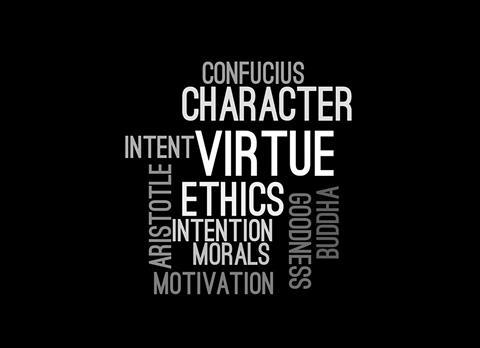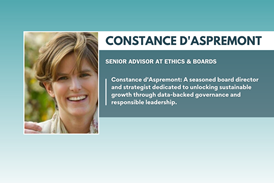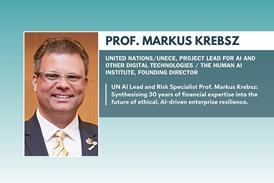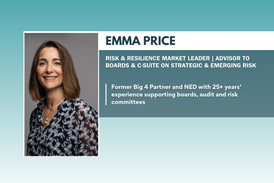ESG is facing further criticism but is it fair? Is ESG ethical? Cognitive dissonance and the Ukrainian crisis put ESG under the microscope.

For a short while, I was pleased that Coca Cola was still selling its drink into Russia. I was pleased because I desperately need to give up the drink. I thought that the company’s Russian stance might, at last, galvanise me into action (or strictly speaking into the inaction of no longer buying the drink) when concerns about my health didn’t.
Then the company went along and followed the large mass of Western companies in cutting the supply of its products into Russia.
The reason given for why the likes of Coca Cola, Pepsi and McDonald’s chose to impose Russian bans was pressure from customers, but the media’s portrayal of the move was odd.
“The companies have sacrificed profits.” suggested the media take. In fact, their motivation was quite the opposite; they were worried about profits. Sure, they have lost a revenue stream, but the fear that people like me might boycott their products was considered the more significant risk. Besides, it is unclear how their revenues generated in rubles could have been transferred, anyway.
This was no great moral victory; it was simply a pragmatic move by companies managing their risk.
ESG and Russian boycotts
Meanwhile, the ESG critics slam a movement that is meant to stand for ethical business. Bloomberg quoted Paul Clements-Hunt, a key individual in coming up with the acronym ESG in the first place. He said: “ESG investors have failed.”
Indeed, Bloomberg headlined: “ESG Finds Itself at Crossroads After Investing in Putin’s Russia.”
→ SEE ALSO: ESG exposure to Russia — it’s complicated
Ethics and ESG
But, there is a difference between ESG and ethics — indeed, they can be quite different. ESG refers to environmental, social and governance; it is not in its charter (that’s metaphorical charter) to engage in global politics.
Bloomberg itself went on to quote the head of sustainability Morningstar’s global head research, Hortense Bioy, who said: “There are still people who inappropriately conflate sustainability and ethics. Sustainable and ESG funds aren’t the same as ethical funds.”
So there you have it, ESG isn’t about ethics at all.
The spirit of ESG
Except ESG is about ethics in spirit, and it being unethical and applying ESG are both simultaneously possible; then I suggest ESG is failing.
For one thing, it is about customer perception. One of the key justifications made by ESG advocates is to say that adopting ESG is good business sense because customers demand it. Well, if ESG fails to deliver an ethical outcome on the very issue just about everyone is talking about, then customers won’t demand it. So one of the core rationales for ESG goes out the window.
Then there is authenticity. We are told, over and over again, that ESG only works if the people who are pushing it believe in it; that ESG must be heartfelt.
We are told that ESG thinking must be ingrained into a company’s culture; that we need ESG by design. So, where is that heartfelt reaction if ESG does not help prompt companies to join the public in the current ethical issue dominating headlines?
If ESG thinking is heartfelt and authentic, there should be no contradiction between ESG and what is happening right now in Ukraine.
Not psychic
The ESG fraternity is not psychic, of course. You can’t criticise ESG for allowing investment into Russian companies before the Ukrainian crisis. But ESG must be agile; it must be able to pivot and do so rapidly, or else it will be left wanting.
Banks are already informing clients that they must check their supply chain and ensure that there are no Russian links. Banks have realised that potential government fines and a public backlash threaten the viability of their customers who do not examine their supply chain. These are precisely the kind of concerns that ESG advocates have said is the main motivation for ESG.
Cognitive dissonance over energy
And yet, ESG has not got it so wrong.
Right now, there is s clamour among certain political activists and populists to cancel net zero. These people say that net-zero has enabled Putin.
And this is where cognitive dissonance enters the story. It is ludicrous to blame net-zero for high gas prices. Okay, Germany may have been in error to halt local fossil sources and nuclear and import fossil fuels from Russia. But net-zero thinking was not responsible for that; instead, poor thinking was to blame.
But the solution to reliance on Russian oil and gas isn’t to move away from net-zero; it is to accelerate it.
Net-zero critics call for fracking in the UK, for example. They call for new investments in nuclear, and they call for investment into funding and opening new oil fields. They say we can’t afford net-zero when the cost of living is going up so fast.
I am not sure what planet people who make these arguments are on, but I doubt it is this one. It can take ten years plus from initial work to have a shale gas site fully operational. It can take even longer to build a new nuclear plant and longer still to get oil flowing from a newly found site. And in all cases, the upfront investment is huge.
Scaling renewables represents both the quickest and cheapest route to energy security.
But still, the cognitive dissonance persists. These critics then point to soaring nickel costs and other materials vital for electric vehicles, which are mined in Russia. But they ignore that Russia is a significant source of palladium used in catalytic converters; that the cost of aluminium used in all cars is soaring
In 2008, Brent Crude went close to $150 a barrel, a level which remains the all-time high. With Saudi increasing the oil flow, the price may not pass that record; or maybe it will.
Either way, we know that the cost of fuel for internal combustion engine cars is soaring. This, in turn, makes EVs seem more appealing. Likewise, the cost of second-hand cars is surging too. So the economics of buying an EV is getting more attractive; this will help net-zero.
As for ESG, the advantages of net-zero actually makes it more appealing.
In any case, because fossil fuels are Russia’s largest export, ESG investing did already mean limited exposure to Russia.
ESG, ethics and net-zero
Despite the backlash, ESG hasn’t fallen short. But while it is true ethics and ESG is not necessarily the same thing, it is in the eye of the public. And it should be in spirit.
ESG For Directors & Officers
28th April 2022 - London, 10AM - 4PM
ESG for Directors & Officers event will be led by leading industry and subject matter experts, with a deep-understanding of successful ESG strategies, and what it takes to achieve them.
Across the 6-hours attendees will have the opportunity to tap into the expertise of the speakers, and deep-dive into both societal and industry challenges and issues.
BOOK YOUR PLACE AT ESG FOR DIRECTORS & OFFICERS












No comments yet